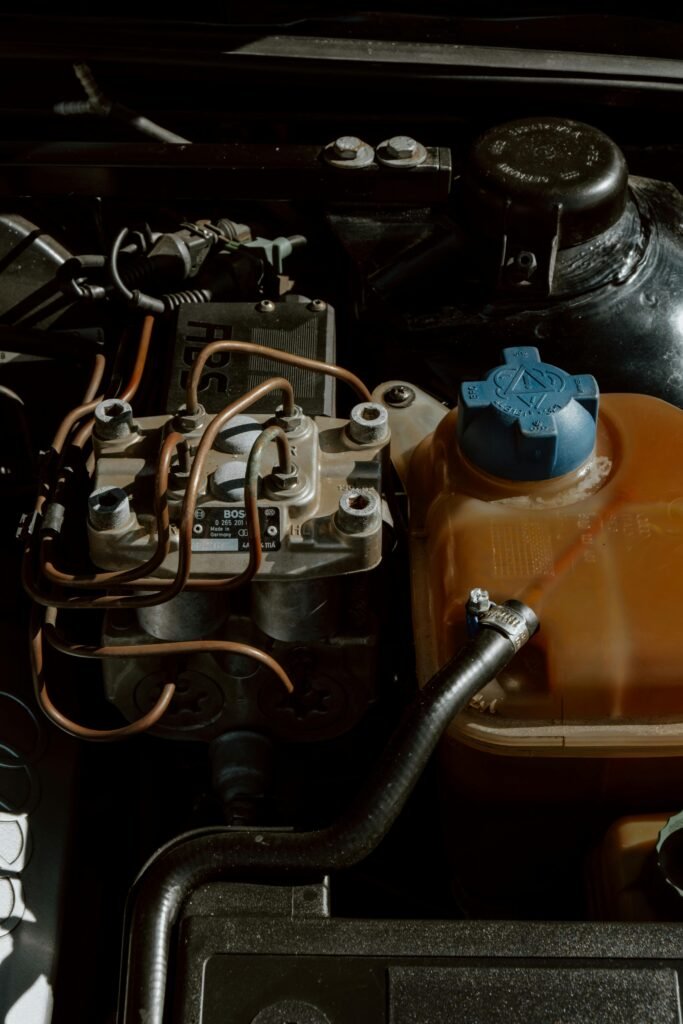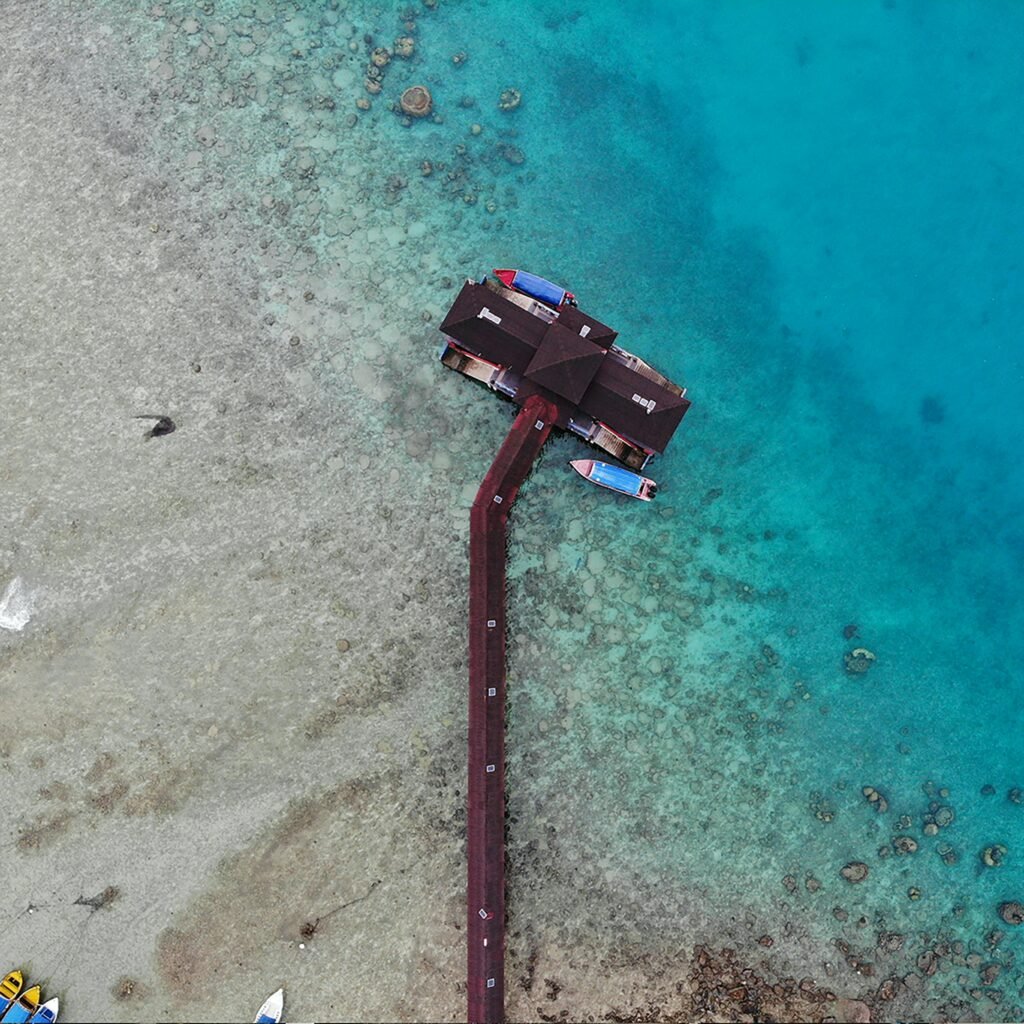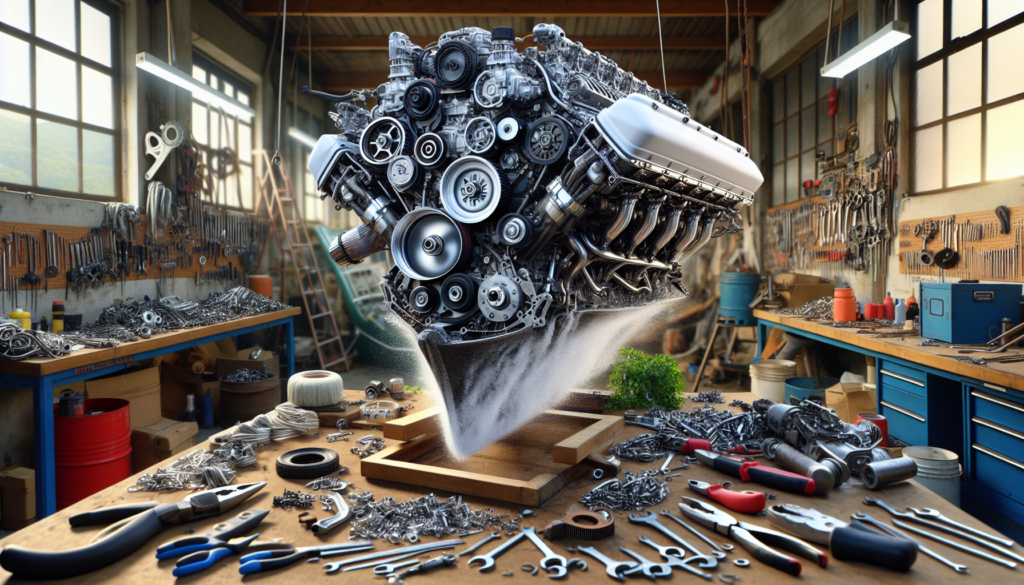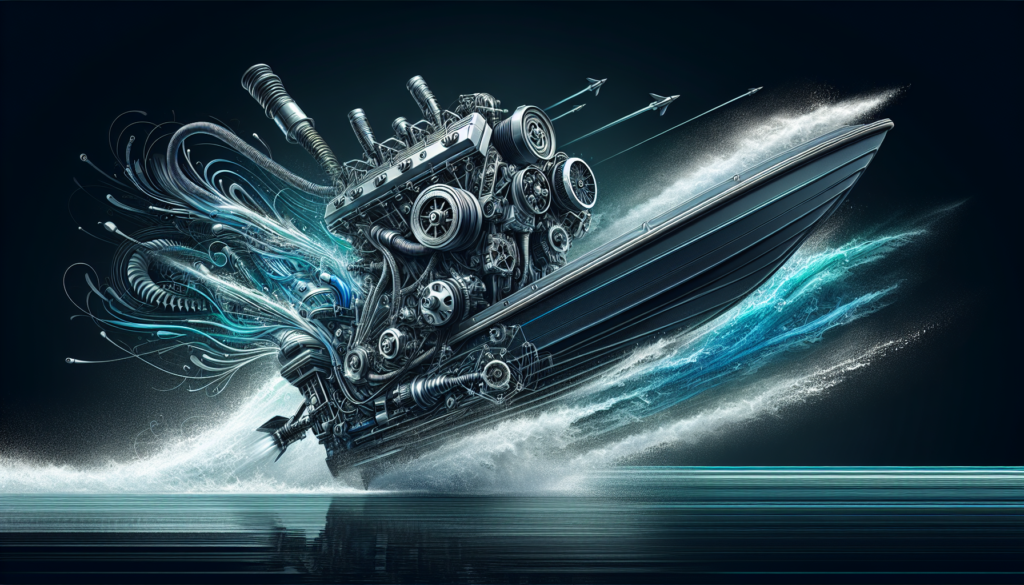Are you a boating enthusiast looking to take your boat’s performance to the next level? Look no further! This article is your ultimate guide to boat engine modification, specifically designed for beginners. Whether you’re seeking more speed, fuel efficiency, or overall power, we’ve got you covered. From understanding basic terminology to exploring various modification options, this comprehensive guide will equip you with the knowledge and confidence to enhance your boat’s performance while navigating the open waters. So, gear up and get ready to unlock the full potential of your boat engine!

Choosing the Right Boat Engine
When it comes to choosing a boat engine, there are several factors that need to be taken into consideration. First and foremost, you need to determine the purpose of your boat. Are you using it for fishing, recreational activities, or water sports? The purpose of the boat will help you determine the size and weight of the engine you need.
Determining the Boat’s Purpose
Before you can choose the right boat engine, you need to determine the purpose of your boat. If you’re planning on using your boat for fishing, a smaller engine may be sufficient. However, if you’re planning on participating in water sports or need to transport heavy loads, you may need a more powerful engine. Consider the activities you’ll be engaging in and choose an engine that can adequately support those activities.
Considering the Boat’s Size and Weight
Another important factor to consider is the size and weight of your boat. A larger boat will require a more powerful engine to provide sufficient propulsion and control. On the other hand, a smaller boat may do well with a smaller engine. Take into account the weight of the boat, as well as any additional cargo or passengers that will be on board. Make sure the engine you choose is capable of handling the weight and size of your boat.
Matching the Engine Power to the Boat’s Needs
Once you have determined the purpose of your boat and considered its size and weight, it’s time to match the engine power to the boat’s needs. This involves looking at the horsepower, torque, displacement, and compression ratio of the engine. These specifications will give you a better understanding of the engine’s capabilities and whether it will meet your boat’s requirements. We will delve deeper into these specifications later in the article.
Types of Boat Engines
There are several types of boat engines available, each with its own advantages and disadvantages. It’s important to understand the different types and their characteristics before making a decision.
Outboard Engines
Outboard engines are the most popular and widely used type of boat engines. They are typically attached to the transom of the boat and can be easily removed and serviced. Outboard engines are known for their versatility and maneuverability, making them ideal for a wide range of boat sizes and activities. They are also relatively easy to maintain, making them a popular choice for boat owners.
Inboard Engines
Inboard engines are situated within the hull of the boat, usually in the center or rear. They are commonly found in larger boats and provide a quieter and smoother ride compared to outboard engines. Inboard engines are known for their power and ability to handle heavy loads, making them suitable for water sports and larger vessels. However, they require more maintenance and are generally more expensive to install and service.
Stern Drive Engines
Stern drive engines, also known as inboard/outboard engines, combine the features of both inboard and outboard engines. They are located within the boat’s hull, but the propulsion system is mounted on the transom. Stern drive engines offer excellent maneuverability and are commonly found in mid-size recreational boats. They provide a good balance between power and fuel efficiency.
Jet Drive Engines
Jet drive engines use a water pump to create propulsion, eliminating the need for a propeller. They are commonly found in smaller boats and are known for their shallow draft capabilities. Jet drive engines are ideally suited for activities in shallower waters, such as fishing and water sports. However, they may not be as fuel-efficient as other engine types and can be more expensive to repair.

Understanding Boat Engine Specifications
To effectively choose the right boat engine, it’s essential to understand the various specifications associated with them. Let’s take a closer look at some of the key specifications you need to consider.
Horsepower (HP)
Horsepower is a measure of the engine’s power output. It determines the speed and acceleration of the boat. Higher horsepower engines provide more speed and better acceleration, but they also consume more fuel. It’s important to choose an engine with sufficient horsepower to meet your needs without sacrificing fuel efficiency.
Torque
Torque is a measure of the turning force generated by the engine. It determines the engine’s ability to move heavy loads or tow other boats or watercraft. Engines with higher torque are better suited for activities that require pulling or towing, such as water skiing or wakeboarding.
Displacement
Displacement refers to the total volume of the engine’s cylinders. It is measured in cubic inches (CI) or liters (L). Generally, engines with larger displacement produce more power and torque. However, they also tend to consume more fuel. Consider the size and weight of your boat when choosing the displacement of the engine.
Compression Ratio
The compression ratio determines the combustion efficiency of the engine. It measures the ratio between the volume of the cylinder when the piston is at the bottom and the volume when the piston is at the top. Higher compression ratios result in better fuel efficiency and increased power. However, they require higher octane fuel and may be more prone to overheating.
Essential Tools and Equipment
To properly maintain and modify your boat engine, it’s important to have the right tools and equipment. Let’s take a look at the essential tools and equipment you should have in your arsenal.
Basic Hand Tools
Having a set of basic hand tools is essential for any boat owner. This includes wrenches, screwdrivers, pliers, and sockets. These tools will come in handy for basic maintenance tasks such as oil changes, spark plug replacements, and minor repairs.
Engine Diagnostic Tools
Investing in engine diagnostic tools can save you time and money in the long run. These tools allow you to quickly identify and troubleshoot engine issues. They can help you pinpoint problems such as faulty sensors or ignition system malfunctions. Having the ability to diagnose and address engine problems promptly will ensure your boat stays in top condition.
Safety Equipment
Safety should always be a top priority when working on your boat engine. Make sure to have the appropriate safety equipment on hand, such as gloves, safety glasses, and ear protection. You should also have a fire extinguisher and a first aid kit readily available in case of emergencies. Additionally, a bilge pump and life jackets should always be on board your boat.

Popular Boat Engine Modifications
Modifying your boat engine is a popular way to enhance its performance and tailor it to your specific needs. Here are some popular boat engine modifications that you may consider.
Changing the Propeller
Changing the propeller can greatly affect the performance of your boat. A larger propeller with more blades can provide better acceleration and towing capabilities. Conversely, a smaller propeller can increase your boat’s top speed. Carefully consider the size and pitch of the propeller to optimize your boat’s performance based on your needs.
Installing a Power Trim and Tilt System
A power trim and tilt system allows you to adjust the angle of the engine with ease. It can improve the boat’s performance and fuel efficiency by optimizing the trim angle for different water conditions. This modification can also enhance the boat’s handling and reduce the risk of propeller damage in shallow waters.
Upgrading the Fuel System
Upgrading the fuel system can improve the overall performance and efficiency of your boat engine. Consider installing a high-performance fuel pump, fuel injectors, or a larger-capacity fuel tank. These upgrades can provide better fuel delivery and atomization, resulting in smoother operation and improved acceleration.
Enhancing the Ignition System
Upgrading the ignition system can improve the engine’s starting and idling performance. Consider installing a high-performance spark plug, ignition coil, or ignition control module. These upgrades can result in better fuel combustion, increased power, and improved overall engine performance.
Proper Maintenance for Modified Boat Engines
Proper maintenance is crucial to keep your modified boat engine running smoothly and performing optimally. Here are some essential maintenance tasks you should regularly undertake.
Regular Oil and Filter Changes
Regular oil and filter changes are a fundamental aspect of engine maintenance. This ensures that the engine is properly lubricated and that contaminants are removed from the system. Consult your engine manufacturer’s guidelines for the recommended oil change intervals and use high-quality oil and filters.
Keeping the Cooling System Clean
The cooling system of your boat engine is responsible for regulating the engine’s temperature. Ensure that the cooling system is properly maintained by regularly flushing and cleaning it. Check for any leaks or blockages and replace any damaged or worn-out components.
Inspecting and Cleaning the Fuel System
A clean and properly functioning fuel system is essential for optimal engine performance. Regularly inspect and clean the fuel system components, such as the fuel filters and injectors. Replace any faulty or clogged components to ensure a consistent fuel flow to the engine.
Tuning the Engine Regularly
Maintaining proper engine tuning is vital for optimal performance and fuel efficiency. Regularly check and adjust the engine’s carburetor or fuel injection settings. This will ensure that the air-fuel mixture is properly balanced and the engine is running at its peak performance.

Safety Precautions for Boat Engine Modifications
When undertaking boat engine modifications, it’s important to prioritize safety at all times. Here are some safety precautions you should take into consideration.
Seeking Professional Assistance if Needed
If you’re not confident in your abilities or lack the necessary knowledge and skills, it’s always best to seek professional assistance. Boat engine modifications can be complex and require specific expertise. Consulting with a professional can ensure that the modifications are done correctly and safely.
Following Manufacturer Guidelines
Always follow the manufacturer’s guidelines and recommendations when modifying your boat engine. They provide important information regarding installation, maintenance, and safety procedures. Deviating from these guidelines may lead to performance issues or potential safety hazards.
Using the Appropriate Safety Gear
Wearing the appropriate safety gear is crucial when working on your boat engine. Make sure to wear gloves, safety glasses, and ear protection to protect yourself from potential injuries. Additionally, always use the appropriate tools and equipment for each task to avoid accidents.
Testing Modifications in Controlled Environment
Before taking your modified boat engine out on the water, it’s important to test the modifications in a controlled environment. This could be a testing facility or simply a calm body of water. Testing your modifications allows you to ensure that they are functioning correctly and that the performance meets your expectations.
Legal Considerations for Boat Engine Modifications
When modifying your boat engine, it’s important to be aware of and comply with any legal requirements or regulations. Here are some legal considerations you should keep in mind.
Complying with Emissions Regulations
Depending on your location, there may be emissions regulations in place that govern the modifications you can make to your boat engine. Ensure that any modifications you make comply with these regulations to avoid fines or legal issues. Consult with local authorities or regulatory bodies for specific guidelines.
Understanding Noise Restrictions
Noise restrictions may also apply to boat engine modifications. Excessive noise can be disruptive to others and may violate local noise ordinances. Be mindful of noise restrictions in your area and choose modifications that adhere to these limitations.
Registering Modifications with Relevant Authorities
Certain modifications to your boat engine may need to be registered with the relevant authorities. This is especially important if the modifications significantly change the characteristics or capabilities of the boat. Check with your local maritime or boating authority to determine the requirements for registering modifications.

Common Challenges with Boat Engine Modifications
Modifying your boat engine can present a few challenges that you may encounter along the way. Here are some common challenges and how to address them.
Difficulty Sourcing Parts
Finding the specific parts and components needed for your boat engine modifications can sometimes be challenging. It’s important to research and identify reliable sources and suppliers. Consider reaching out to online forums and communities for recommendations and advice.
Compatibility Issues
Compatibility issues can arise when integrating new components or systems with existing ones. Ensure that the modifications you make are compatible with the existing engine and boat systems. Consult with professionals or experts if you’re unsure about compatibility.
Engine Overheating
Modifications that increase the power and performance of the engine may also increase the risk of overheating. Pay close attention to the engine’s temperature and consider installing additional cooling systems if necessary. Proper maintenance and regular inspections can help prevent overheating issues.
Performance Optimization
Achieving the desired performance can also be a challenge. It may require multiple modifications and adjustments to optimize the engine’s performance. Patience, careful tuning, and testing are key to achieving the performance goals you desire.
Resources for Boat Engine Modification
There are several resources available to help you with your boat engine modification journey. Here are some popular resources you may find helpful.
Online Forums and Communities
Online forums and communities are a great source of knowledge and advice for boat engine modifications. They provide a platform for enthusiasts and experts to share their experiences, tips, and recommendations. Participating in these communities can help you gain valuable insights and guidance throughout your modification process.
Boat Engine Modification Books
There are many books available that provide in-depth information on boat engine modifications. These books cover a wide range of topics, including engine tuning, performance enhancements, and specific modification techniques. Investing in these resources can give you a comprehensive understanding of boat engine modifications.
Professional Workshops and Courses
If you’re looking for a more hands-on approach, consider attending professional workshops or courses on boat engine modifications. These workshops are often led by experienced professionals who can provide you with practical knowledge and guidance. Participating in such workshops can give you a deeper understanding of the modification process and allow you to learn from industry experts.
In conclusion, choosing the right boat engine involves considering factors such as the boat’s purpose, size and weight, and matching the engine power to the boat’s needs. Understanding the different types of boat engines and their specifications is also important to make an informed decision. When modifying your boat engine, proper maintenance, safety precautions, and compliance with legal regulations are essential. By taking these factors into consideration and utilizing available resources, you can successfully choose and modify your boat engine to enhance performance and meet your specific requirements.

